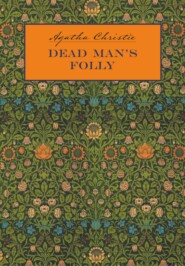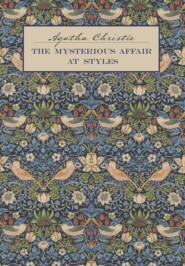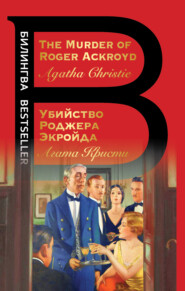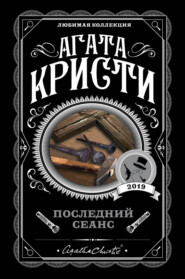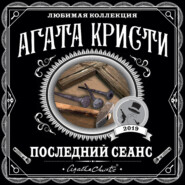По всем вопросам обращайтесь на: info@litportal.ru
(©) 2003-2024.
✖
An Autobiography
Настройки чтения
Размер шрифта
Высота строк
Поля
Another governess, I remember, instructed her pupils in natural history, but little else. A great deal of picking of leaves and berries and wild flowers went on–and a suitable dissection of the same. It was incredibly boring. ‘I do hate all this pulling things to pieces,’ confided my small friend to me. I entirely agreed, and indeed the word Botany all through my life has made me shy like a nervous horse.
My mother had gone to school in her own youth, to an establishment in Cheshire. She sent my sister Madge to boarding school but was now entirely converted to the view that the best way to bring up girls was to let them run wild as much as possible; to give them good food, fresh air, and not to force their minds in any way. (None of this, of course, applied to boys: boys had to have a strictly conventional education.)
As I have already mentioned, she had a theory that no child should be allowed to read until it was eight. This having been frustrated, I was allowed to read as much as I pleased, and I took every opportunity to do so. The schoolroom, as it was called, was a big room at the top of the house, almost completely lined with books. There were shelves of children’s books–Alice in Wonderland and Through the Looking Glass, the earlier, sentimental Victorian tales which I have already mentioned, such as Our White Violet, Charlotte Yonge’s books, including The Daisy Chain, a complete set, I should think, of Henty, and, besides that, any amount of school-books, novels, and others. I read indiscriminately, picking up anything that interested me, reading quite a lot of things which I did not understand but which nevertheless held my attention.
In the course of my reading I found a French play which father discovered me reading. ‘How did you get hold of that?’ he asked, picking it up, horrified. It was one of a series of French novels and plays which he usually kept carefully locked up in the smoking-room for the perusal of adults only.
‘It was in the school-room,’ I said.
‘It shouldn’t have been there,’ said father. ‘It should have been in my cupboard.’
I relinquished it cheerfully. Truth to tell, I had found it somewhat difficult to understand. I returned happily to reading Mémoires d’un Âne, Sans Famille, and other innocuous French literature.
I suppose I must have had lessons of some kind, but I did not have a governess. I continued to do arithmetic with my father, passing proudly through fractions to decimals. I eventually arrived at the point where so many cows ate so much grass, and tanks filled with water in so many hours–I found it quite enthralling.
My sister was now officially ‘out’, which entailed parties, dresses, visits to London, and so on. This kept my mother busy, and she had less time for me. Sometimes I became jealous, feeling that Madge had all the attention. My mother had had a dull girlhood herself. Though her aunt was a rich woman, and though Clara had travelled to and fro across the Atlantic with her, she had seen no reason to give her a social debut of any kind. I don’t think my mother was socially minded, but she did yearn, as any young girl might, to have a great many prettier clothes and dresses than she had. Auntie-Grannie ordered herself very expensive and fashionable clothes at the best dressmakers in Paris, but she always considered Clara as a child, and more or less dressed her as such. The awful sewing women again! My mother was determined that her daughters should have all the pretty-pretties and frivolities of life that she herself had missed. Hence her interest and delight in Madge’s clothes, and later in mine.
Mind you, clothes were clothes in those days! There was a great deal of them, lavish both in material and in workmanship. Frills, ruffles, flounces, lace, complicated seams and gores: not only did they sweep the ground and have to be held up in one hand elegantly as you walked along, but they had little capes or coats or feather boas.
There was also hairdressing: hairdressing, too, really was hairdressing in those times–no running a comb through it and that was that. It was curled, frizzed, waved, put in curlers overnight, waved with hot tongs; if a girl was going to a dance she started doing her hair at least two hours earlier and the hairdressing would take her about an hour and a half, leaving her about half an hour to put on her dress, stockings, slippers and so on.
This was not, of course, my world. It was the grown-ups’ world, from which I remained aloof. Nevertheless, I was influenced by it. Marie and I discussed the toilettes of the Mademoiselles and our special favourites.
It so happened that in our particular road there were no next-door neighbours with children of my age. So, as I had done at a younger age, I once more arranged a set of friends and intimates of my own–in succession to Poodle, Squirrel and Tree, and the famous Kittens. This time I invented a school. This was not because I had any desire myself to go to school. No, I think that The School constituted the only background into which I could conveniently fit seven girls of varying ages and appearances, giving them different backgrounds instead of making them a family, which I did not want to do. The School had no name–it was just The School.
The first girls to arrive were Ethel Smith and Annie Gray. Ethel Smith was eleven and Annie was nine. Ethel was dark, with a great mane of hair. She was clever, good at games, had a deep voice, and must have been rather masculine in appearance. Annie Gray, her great friend, was a complete contrast. She had pale flaxen hair, blue eyes, and was shy and nervous and easily reduced to tears. She clung to Ethel, who protected her on every occasion. I liked them both, but my preference was for the bold and vigorous Ethel.
After Ethel and Annie, I added two more: Isabella Sullivan, who was rich, golden-haired, brown-eyed, and beautiful. She was eleven years of age. Isabella I did not like–in fact I disliked her a good deal. She was ‘worldly’. (Worldly’ was a great word in the story-books of the time: pages of The Daisy Chain are devoted to the worries in the May family because of Flora’s worldliness.) Isabel was certainly the quintessence of worldliness. She gave herself airs, boasted about being rich, and had clothes that were far too expensive for her and too grand for a girl of her age. Elsie Green was her cousin. Elsie was rather Irish; she had dark hair, blue eyes, curls, and was gay and laughed a good deal. She got on quite well with Isabel, but sometimes ticked her off. Elsie was poor; she wore Isabel’s cast-off clothes, which sometimes rankled, but not much, because Elsie was easy-going.
With these four I got on well for some time. They travelled on the tubular railway, they rode horses, they did gardening, they also played a great deal of croquet. I used to arrange tournaments and special matches. My great hope was that Isabel would not win. I did everything short of cheating to see that she did not win–that is, I held her mallet for her carelessly, played quickly, hardly aimed at all–yet somehow the more carelessly I played, the more fortunate Isabel seemed to be. She got through impossible hoops, hit balls from right across the lawn, and nearly always finished as winner or runner-up. It was most annoying.
After a while I thought it would be nice to have some younger girls at the school. I added two six-year-olds, Ella White and Sue de Verte. Ella was conscientious, industrious and dull. She had bushy hair, and was good at lessons. She did well in Dr Brewer’s Guide to Knowledge, and played quite a fair game of croquet. Sue de Verte was curiously colourless, not only in appearance–she was fair, with pale blue eyes–but also in character. Somehow I couldn’t see or feel Sue. She and Ella were great friends, but though I knew Ella like the back of my hand Sue remained fluid. I think this is probably because Sue was really myself When I conversed with the others, I was always Sue conversing with them, not Agatha; and therefore Sue and Agatha became two facets of the same person, and Sue was an observer, not really one of the dramatis personae. The seventh girl to be added to the collection was Sue’s step-sister, Vera de Verte. Vera was an immense age–she was thirteen. She was not at the moment beautiful, but she was going to be a raving beauty in the future. There was also a mystery about her parentage. I had half-planned various futures for Vera of a highly romantic nature. She had straw-coloured hair and forget-me-not blue eyes.
An additional help to ‘the girls’ were bound copies of Royal Academy pictures which my grandmother had in the house in Ealing. She promised that they should belong to me one day, and I used to spend hours looking at them in wet weather, not so much for artistic satisfaction as for finding suitable pictures of ‘the girls’. A book that had been given me as a Christmas present, illustrated by Walter Crane–The Feast of Flora–represented flower pictures in human form. There was a particularly lovely one in it of forget-me-nots wreathed round a figure who was definitely Vera de Verte. Chaucer’s Daisy was Ella, and the handsome Crown Imperial striding along was Ethel.
‘The girls’, I may say, stayed with me for many years, naturally changing their characters as I myself matured. They participated in music, acted in opera, were given parts in plays and musical comedies. Even when I was grown up I spared them a thought now and then, and allocated them the various dresses in my wardrobe. I also designed model gowns for them in my mind. Ethel, I remember, looked very handsome in a dress of dark blue tulle with white arum lilies on one shoulder. Poor Annie was never given much to wear. I was fair to Isabel, though, and gave her some extremely handsome gowns–embroidered brocades, and satins usually. Even now, sometimes, as I put away a dress in a cupboard, I say to myself: ‘Yes, that would do well for Elsie, green was always her colour.’ Ella would look very nice indeed in that three-piece jersey suit.’ It makes me laugh when I do it, but there ‘the girls’ are still, though, unlike me, they have not grown old. Twenty-three is the oldest I have ever imagined them.
In the course of time I added four more characters: Adelaide, who was the oldest of all, tall, fair and rather superior; Beatrice, who was a merry, dancing, little fairy, the youngest of them all; and two sisters, Rose and Iris Reed. I became rather romantic about those two. Iris had a young man who wrote poetry to her and called her ‘Iris of the Marshes’, and Rose was very mischievous, played tricks on everybody, and flirted madly with all the young men. They were, of course, in due time married off, or remained unmarried. Ethel never married but lived in a small cottage with the gentle Annie–very appropriate, I think now: it’s exactly what they would have done in real life.
Soon after our return from abroad the delights of the world of music were opened to me by Fraulein Uder. Fraulein Uder was a short, wiry, formidable, little German woman. I don’t know why she was teaching music in Torquay, I never heard anything of her private life. My mother appeared one day in the Schoolroom with Fraulein Uder in tow, explaining she wanted Agatha to start learning the piano.
‘Ach!’ said Fraulein Uder with a rich German sound, though she spoke English perfectly. ‘Then we will at once to the piano go.’ To the piano we went–the schoolroom piano, of course, not the grand piano in the drawing-room.
‘Stand there,’ commanded Fraulein Uder. I stood as placed to the left of the piano. ‘That,’ she said, thumping the note so hard that I really thought something might happen to it, ‘is C Major. You understand? That is the note C. This is the scale of C Major.’ She played it. ‘Now we go back and play the chord of C, like that Now again–the scale. The notes are C, D, E, F, G, A, B, C. You understand?’
I said yes. As a matter of fact I knew that much already.
‘Now,’ said Fraulein Uder, ‘you will stand there where you cannot see the notes and I play first C, then another note, and you shall tell me what the second is.’
She hit C, and then hit another note with equal force.
‘What is that? Answer me.’
‘E,’ I said.
‘Quite right. Good. Now we will try again.’
Once more she thumped C, and then another note. ‘And that?’ ‘A,’ I hazarded.
‘Ach, that it first class. Good. This child is musical. You have the ear, yes. Ach, we shall get on famously.’
I certainly got off to a good start. I don’t think, to be honest, I had the least idea what the other notes were she was playing. I think it must have been an inspired guess. But anyway, having started on those lines we went ahead with plenty of good will on either side. Before long the houses resounded with scales, arpeggios, and in due course the strains of The Merry Peasant. I enjoyed my music lessons enormously. Both father and mother played the piano. Mother played Mendelssohn’s Songs Without Words and various other ‘pieces’ that she had learned in her youth. She played well, but was not, I think, a passionate music lover. My father was naturally musical. He could play anything by ear, and he played delightful American songs and negro spirituals and other things. To The Merry Peasant Fraulein Uder and I added Trdumerei, and other of Schumann’s delicate little tunes. I practised with zeal for an hour or two a day. From Schumann I proceeded to Greig, which I loved passionately–Erotique and the First Rustle of Spring were my favourites. When I finally progressed to being able to play the Peer Gynt Morgen I was transported with delight. Fraulein Uder, like most Germans, was an excellent teacher. It was not all playing of pleasant tunes; there were masses of Czerny’s Exercises, about which I was not quite so zealous, but Fraulein Uder was having no nonsense. ‘You must the good grounding have,’ she said. ‘These exercises, they are the reality, the necessity. The tunes, yes, they are pretty little embroideries, they are like flowers, they bloom and drop off, but you must have the roots, the strong roots and the leaves.’ So I had a good deal of the strong roots and the leaves and an occasional flower or two, and I was probably much more pleased with the result than the others in the house, who found so much practising somewhat oppressive.
Then there was also dancing-class, which took place once a week, at something grandiosely called the Athenaeum Rooms, situated over a confectioner’s shop. I must have started going to dancing-class quite early–five or six, I think–because I remember that Nursie was still there and took me once a week. The young ones were started off with the polka. Their approach to it was to stamp three times: right, left, right–left, right, left–thump, thump, thump–thump, thump, thump. Very unpleasant it must have been for those having tea at the confectioner’s underneath. When I got home I was slightly upset by Madge, who said that that was not how the polka was danced. ‘You slide one foot, bring the next up to it, and then the first,’ she said, ‘like this.’ I was rather puzzled, but apparently it was Miss Hickey’s, the dancing-mistress’s idea of getting the rhythm of the polka before you did the steps.
Miss Hickey, I remember, was a wonderful if alarming personality. She was tall, stately, had a pompadour of grey hair beautifully arranged, long flowing skirts, and to waltz with her–which happened, of course, much later–was a terrifying experience. She had one pupil teacher of about eighteen or nineteen, and one of about thirteen called Aileen. Aileen was a sweet girl, who worked hard, and whom we all liked very much. The older one, Helen, was slightly terrifying, and only took notice of the really good dancers.
The procedure of dancing-class was as follows. It started with what were called ‘expanders’, which exercised your chest and arms. They were a sort of blue ribbon elastic with handles. You stretched these vigorously for about half an hour. There was then the polka, which was danced by all once they had graduated from thump, thump, thump–the older girls in the class dancing with the younger ones. ‘Have you seen me dance the polka? Have you seen my coat-tails fly?’ The polka was merry and unattractive. Then you had the grand march, in which, in pairs, you went up the middle of the room, round the sides, and into various figures of eight, the seniors leading, the juniors following up. You had partners for the march whom you engaged yourself, and a good deal of heart-burning took place over this. Naturally, everybody wished to have as partner either Helen or Aileen, but Miss Hickey saw to it that there were no particular monopolies. After the march the smaller ones were removed to the junior room, where they learned the steps of either the polka or, later, the waltz, or steps in their fancy dances at which they were particularly maladroit. The seniors did their fancy dance under the eye of Miss Hickey in the big room. This consisted of either a tambourine dance, a Spanish castanet dance, or a fan dance.
Talking of the fan dance, I once mentioned to my daughter, Rosalind, and her friend Susan, when they were girls of eighteen or nineteen, that I used to do a fan dance in my youth. Their ribald laughter puzzled me.
‘You didn’t really, mother, did you? A fan dance! Susan, she did a fan dance!’
‘Oh,’ said Susan, ‘I always thought that Victorians were so particular.’ It dawned on us soon, however, that by a fan dance we did not mean exactly the same thing.
After that the seniors sat out and the juniors did their dance, which was the Sailor’s Hornpipe or some gay little folk dance, not too difficult.
Finally we entered into the complications of The Lancers. We were also taught the Swedish Country Dance, and Sir Roger de Coverley. These last were especially useful because when you went to parties you were not shamed by ignorance of such social activities.
At Torquay we were almost entirely girls. When I went to dancing-class in Ealing there was quite a number of boys. This I think was when I was about nine, very shy, and not as yet adept in dancing. A boy of considerable charm, probably a year or two older than I was, came up and asked me to be his partner in The Lancers. Upset and downcast, I said that I couldn’t dance The Lancers. It seemed to me hard; I had never seen so attractive a boy. He had dark hair, merry eyes., and I felt at once that we were going to be soul-mates. I sat down sadly when The Lancers began, and almost immediately Mrs Wordsworth’s representative came up to me. ‘Now, Agatha, we can’t have anyone sitting out.’
‘I don’t know how to dance The Lancers, Mrs Wordsworth.’
‘No, dear, but you can soon learn. We must find you a partner.’
She seized a freckled boy with a snub nose and sandy hair; he also had adenoids. ‘Here you are. Here is William.’ During The Lancers, when we were engaged in visiting, I came up against my first love and his partner. He whispered to me, in dudgeon: ‘You wouldn’t dance with me, and here you are. It is very unkind of you.’ I tried to tell him that I couldn’t help it, that I had thought I couldn’t dance The Lancers but I was told I had to–but there is not time when you are visiting in The Lancers to enter into explanations. He continued to look reproachfully at me until the end of the dancing-class. I hoped I might meet him the following week, but alas I never saw him again: one of life’s sad love stories.
The waltz was the only dance I learned that was going to be useful to me through life, and I have never really liked waltzing. I do not like the rhythm, and I always used to get exceedingly giddy, especially when honoured by Miss Hickey. She had a wonderful sweep round in the waltz, which practically took you off your feet, and which left you at the end of the performance with your head reeling, hardly able to stand up. But I must admit that it was a beautiful sight to watch her.
Fraulein Uder disappeared from my life; I don’t know where or when. Perhaps she went back to Germany. She was replaced a little later by a young man called, as far as I remember, Mr Trotter. He was the organist of one of the churches; was rather a depressing teacher, and I had to adopt an entirely different style. I had to sit practically on the floor, with my hands reaching upward to get to the keys of the piano, and everything had to be played from the wrist. Fraulein Uder’s method, I think, must have been to sit high and play from the elbows. One was more or less poised above the piano so as to be able to come down on the keys with maximum power. Very satisfactory!
V
It must have been shortly after our return from the Channel Isles that the shadow of my father’s illness began to be felt. He had not been well abroad, and had twice consulted a doctor. The second doctor had pro-pounded a somewhat alarmist view, namely that my father suffered from a kidney disease. After our return to England he consulted our own doctor, who did not agree with that diagnosis and who sent him to a specialist. After that, the shadow was there, faint, felt only by a child as one of those atmospheric disturbances which are to the psychic world as an approaching thunderstorm is to the physical one.
Medical science seemed to be of little use. Father went to two or three specialists. The first one said it was definitely a heart condition. I don’t remember the details of it now; I only remember listening to my mother and sister talking, and the words ‘an inflammation of the nerves surrounding the heart,’ which sounded to me very frightening. Another doctor who was consulted put it down entirely to gastric trouble.
At increasingly short intervals my father had attacks of pain and breathlessness during the night, and my mother sat up with him, altering his position and giving him such medicaments as had been ordered by the last doctor.






